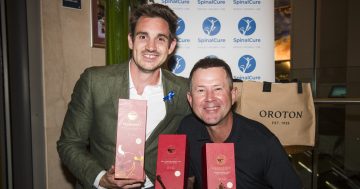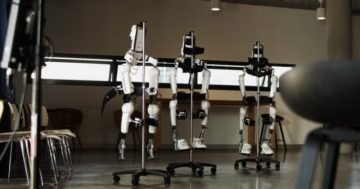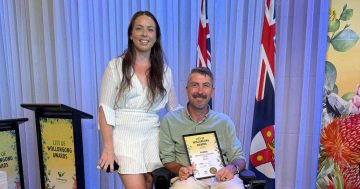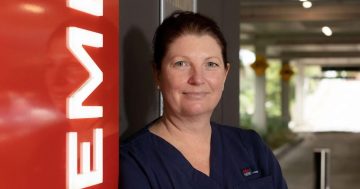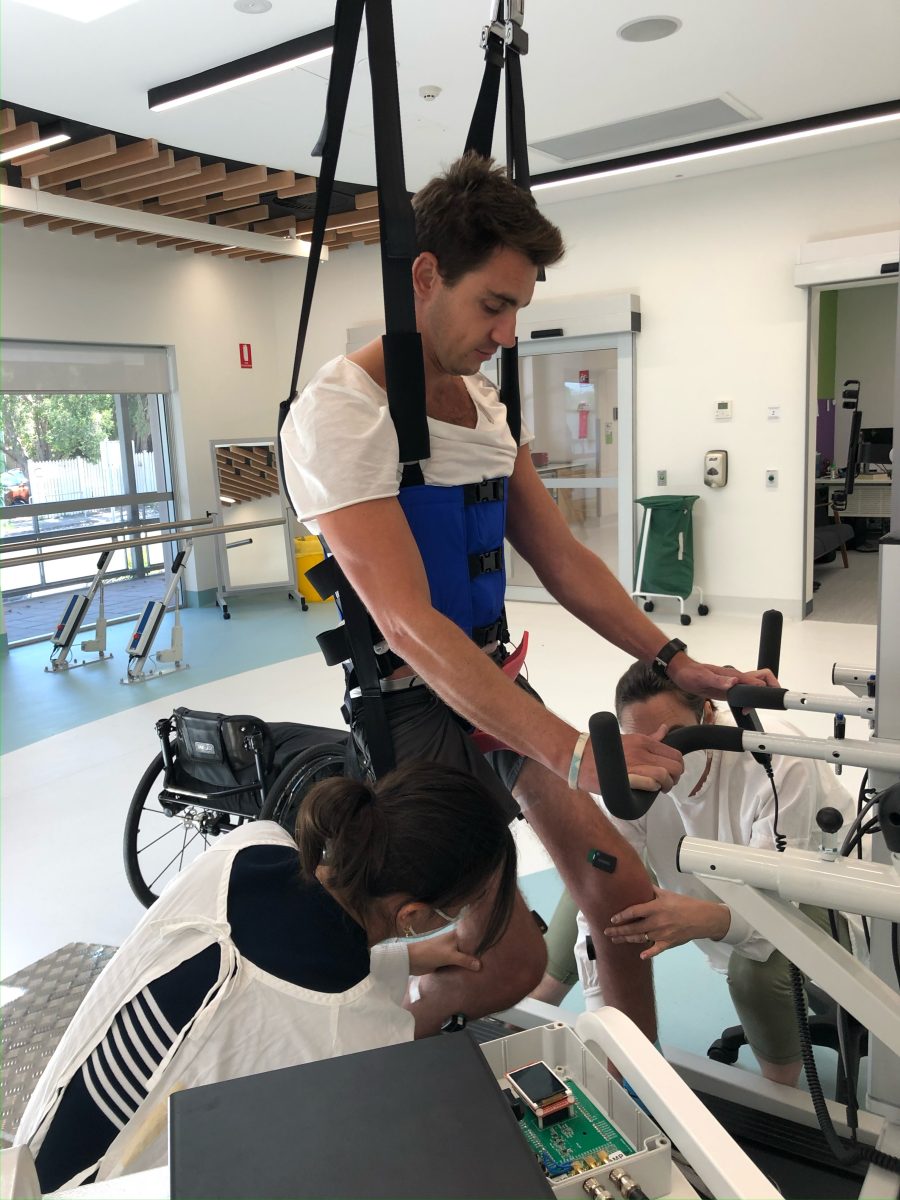
Wollongong man Dean Martelozzo took part in the early stages of the eWALK neurostimulation trial. Photo: SpinalCure.
A landmark international trial into a potential treatment for spinal cord injuries is on the hunt for participants.
The eWALK trial is aimed at improving the lives of people with paraplegia by exploring the potential of neurostimulation to rewire neural pathways through electrical impulses delivered via skin electrodes.
Funded by SpinalCure Australia and CatWalk Trust NZ, with further support from Spinal Cord Injuries Australia, many hope the trial will transform the treatment of spinal cord injuries.
One of them is Wollongong man Dean Martelozzo, who became a paraplegic just before his 21st birthday after a snowboarding accident.
Dean said even small improvements in function could make a huge difference to the lives of people with spinal cord injuries.
“When I had my accident I was a typical arrogant 21-year-old,” he said.
“I thought I was going to put in more work than everyone else and prove the doctors wrong.
“But with spinal cord injuries no matter how hard you work, you can only recover as far as the body lets you recover.
“I’m lucky that my upper body is relatively unaffected, but for some people improving their grip strength enough to bring a cup to their mouth can give them a lot more independence.”
Led by the Spinal Cord Injury Research Centre at Neuroscience Research Australia (NeuRA) in Sydney, the eWALK trial unites spinal stimulation with step and walking training to assess its capacity to restore spinal cord function.
The trial aims to recruit a total of 50 participants, with about half already enrolled and treated.
Professor Simon Gandevia, leading the trial at NeuRA, said it was a remarkable opportunity for paraplegics to access the experimental treatment.
“The eWALK trial represents a significant stride forward in the field of neurostimulation,” he said.
“We’re enthusiastic about investigating the potential benefits of this technology and strongly encourage eligible individuals to join us in this journey.”
About 21,000 Australians are affected by a spinal cord injury, and there is currently no effective treatment.
The cost to the economy is about $3.75 billion each year – and the personal cost for sufferers and their families is even greater.

Dean Martelozzo shortly before his accident. Photo: Dean Martelozzo.
Dean said people often underestimate the effects of spinal cord injuries.
“I was naive before accident and thought people in wheelchairs just couldn’t walk – but like an iceberg, that’s just the bit you can see,” he said.
“You lose sensation in your peripheral nervous system, you can lose control of your extremities.
“Research is my only hope now – there is no pill, no lifestyle change, nothing I can do to mitigate the impact of my injury on my life.
“I want us to get to the heart of the issue and find a solution, and this research, the results so far are really exciting.
“Every bit of research increases our knowledge and brings us closer to that goal at the end.”
His greatest dream, as someone who lives close to the ocean, is to be able to cross the sand and simply jump in for a swim.
Kathryn Borkovic, CEO of SpinalCure Australia, said the neurostimulation therapy used in the eWALK trial was the most promising treatment researchers have found so far.
“In smaller studies overseas, participants have experienced a return of walking, upper limb grip and movement, and other bodily functions such as bladder and bowel,” she said.
“It is a non-invasive method and does not require surgery.”
Ideal candidates for the 12-week program conducted at sites in Sydney and Melbourne are NSW or Victoria-based, with grants available for individuals from rural and regional areas in NSW and Victoria to relocate for the duration of the trial.
Eligible individuals must be aged 16 or older and have received a diagnosis of a spinal cord injury within the T2 to T11 range, at least one year ago.
Essential criteria include the capability to take a few steps (up to 10 metres) with the assistance of two therapists or fewer, and some voluntary muscle contraction in specific muscle groups.
If you’re interested in registering for the trial, visit the SpinalCure website.









